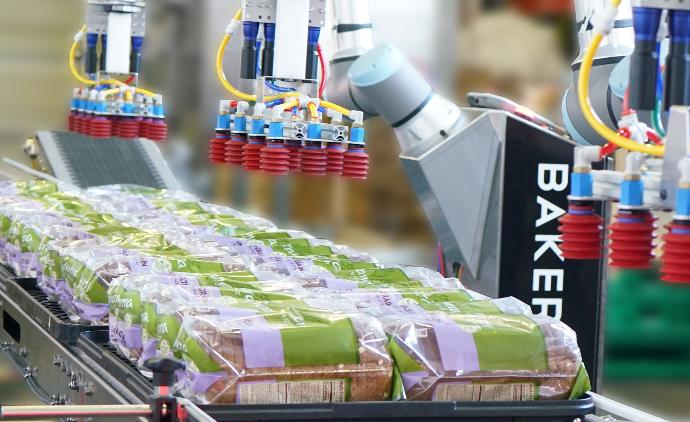
Robotics and AI driving innovation
The ever-cautious baking industry is poised to take its first steps, according to a pulse survey of 80 commercial bakeries and industry suppliers conducted by the American Bakers Association (ABA) and NDP Analytics in March.
The key takeaway from the research indicated that nearly 70% of survey respondents have adopted or plan to adopt AI in some capacity, including pilot programs, during the next 12 months.
Read the full article on Baking Business
Copyright Sosland Baking Business 06.20.2024. Writer Dan Malovany
To improve product handling, machine learning algorithms enable robots to optimize
their movements and tasks based on real-time data, said Jamie Bobyk, marketing manager,
Apex Motion Control. AI is also being used to enhance predictive maintenance.
“These algorithms can analyze product size, shape and weight to ensure precise handling and packaging,” he explained. “The result is a decrease in errors which in turn reduces product waste and improves overall quality control.”
Some tasks, he added, are simpler to implement than others. In fact, once a robot or cobot learns a certain function, it’s easier to build upon an existing program to install other automated systems to handle additional workloads.
“When talking about strictly repeatable tasks, such as stacking boxes on pallets or moving trays from conveyors to racks or racks to conveyors, much of the standard programming that goes into machine learning can be used in many of the standard applications,” Bobyk said. “The more that robotics are implemented into production facilities, everyday repeatable tasks will become part of the programming norm.”
Machine learning, along with similar tools, now offers shorter programming times for cobots and robots. Used properly, they can simplify what were once complex, often expensive and even frustrating processes a few years ago.

the inconsistenies in baked cakes. It is capable of producing 10 fully iced and decorated cakes in 1 minute